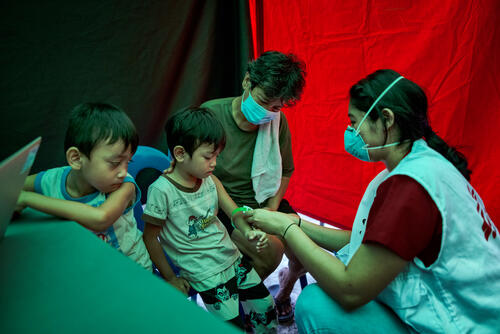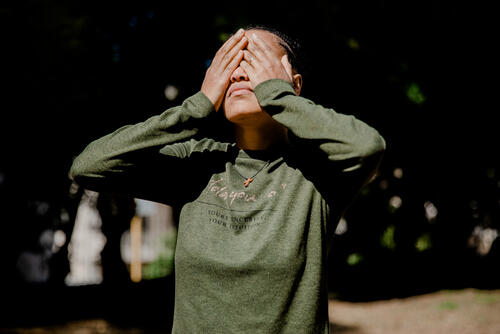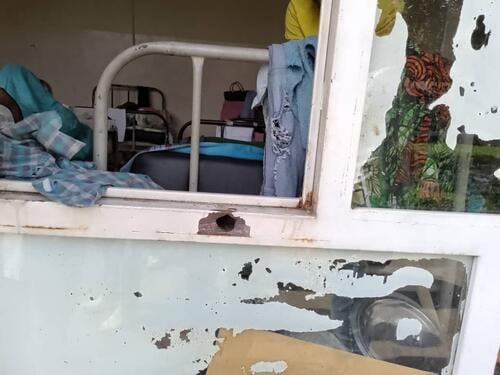While COVID-19 raised awareness of the risks of airborne disease among the general population, people living in vulnerable circumstances - such as people living in overcrowded areas - were also exposed to an increased risk of tuberculosis (TB) infection. Prolonged lockdowns and disruptions to TB services in the Philippines meant those in overcrowded areas faced a double risk.
Sitting in front of her grocery stall, which is also the home she shares with her 10 family members, Amalia, 42, does not mention the name of the disease she discovered in the Médecins Sans Frontières (MSF) TB screening truck, in May 2022. In this building in the slum of Tondo, Manila, the lack of privacy is such that one prefers not to say the word ‘tuberculosis’ for fear of scaring neighbours.
“I immediately thought of my mother, that was the cause of her death. I thought, maybe this will kill me, too,” says Amalia.
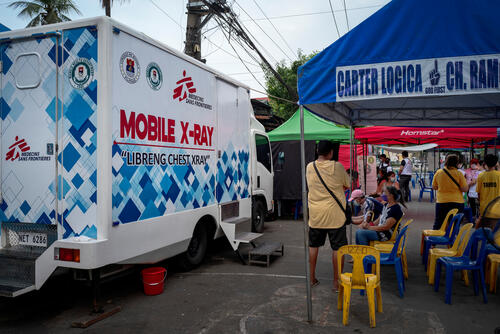
When the diagnosis was confirmed, an MSF patient support team contacted Amalia and informed her of the diagnosis. Our team reassured her that she could recover by carefully following a free-of-charge six-month course of treatment at her local health centre.
Amalia is now cured. She has since opened her small grocery store and can once again embrace her grandchildren without worry.
TB kills at least 1.5 million people each year worldwidehttps://www.who.int/fr/news-room/fact-sheets/detail/tuberculosis. It was the deadliest infectious disease in the world before COVID-19 occurred. During the COVID-19 pandemic, the number of TB-related deaths rose, and the number of new TB cases increased for the first time in decadeshttps://www.who.int/fr/news/item/27-10-2022-tuberculosis-deaths-and-disease-increase-during-the-covid-19-pandemic.
The TB bacterium is spread through the air when an infected person sneezes, coughs or talks. It can be easily transmitted in confined spaces and can remain dormant in the body for months or years without becoming an active disease.
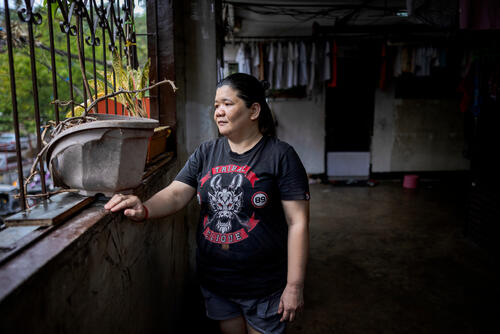
How TB spreads in the slums
More than 650,000 people live clustered in Tondo, an area of about nine square-kilometres stretching between the port and the business district of Manila, one of the most densely populated slums in the world. For nearly two years, strict anti-COVID-19 measures contributed to overcrowding.
In Tondo, people lived together in small, poorly ventilated rooms. Children stayed at home for two and a half years as schools were closed throughout the country. Many of the men could no longer work.
“As elsewhere, restrictions on movement, concerns over the risks of visiting health facilities, shortages of medical personnel and the closure of health facilities led to a sharp drop in the number of diagnosed TB cases, as well as disruptions to TB treatment,” says Dr Trisha Thadhani, an MSF doctor specialising in TB.

Active case finding
In collaboration with the Manila Department of Health, our teams launched an active case-finding project for TB in Tondo. The aim is to screen people, trace contact cases, and refer TB-positive patients to local health centres. We also follow up with patients to ensure they adhere to the treatment regimen and break the chains of transmission.
The project makes screening accessible and available near the areas where community members live and work. But the presence of the X-ray device alone is not enough to encourage people to get screened.
“When we started activities, few people wanted to be screened because of preconceived notions and fears about TB,” says Dr Ruth Roxas, manager of MSF's active case-finding initiative.
“Our main challenge is to encourage people to participate in screening even if they feel healthy. It is common to hear that TB only affects people who are old or already sick,” says Dr Roxas.
Often, the priority is not health, but earning enough money to support the family.Dr Ruth Roxas, manager of MSF's active case-finding initiative
Among the fears is potentially discovering an infection and being rejected by family and neighbours who are afraid of getting sick themselves, or losing their jobs. Treatment takes time and requires visiting the health centre on a regular basis for six months to refill medication. Transportation to health centres can also be expensive.
“Often, the priority is not health, but earning enough money to support the family,” says Dr Roxas.
MSF's health promotion team, in collaboration with local authorities, is trying to overcome these obstacles. Every day, our health promotion teams encourage people to get screened, knocking on every door. The team also conduct awareness-raising sessions to address misconceptions about the disease. The message is clear: TB can be cured and treatment reduces the risk of infection in the household. Now, between 400 and 450 people come for screening in the MSF truck every week.
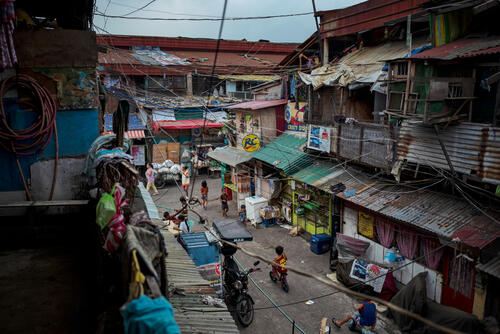
Children at high risk
“Infants and young children are particularly prone to severe and fatal forms of the disease,” says Thadhani. “However, the diagnosis of children is more complex than adults, as it is difficult for them to produce the sputum needed for laboratory analysis.
“In addition, nutritional deficiencies in Tondo make children even more vulnerable. Protecting children through preventative measures in parallel with the treatment of adults when contamination is suspected is our priority.”
The rate of confirmed TB cases among the 6,400 people our teams have screened in the last 10 months is on an average five per cent. Our teams continue to track down TB door after door, day after day. “It's a drop in the ocean,” says Thadhani, but she remains hopeful that the gap left in the pandemic's wake can be filled by the joint effort of TB control stakeholders in Tondo and elsewhere.



